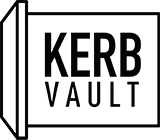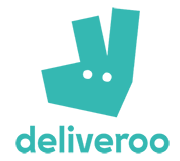Zipcar for Business provides a streamlined solution for companies like yours, offering a diverse fleet of over 3,000 vehicles in convenient roadside locations. Zipcar for Business delivers a dedicated business car share service designed to perfectly align with your unique needs, ensuring a seamless experience for all your business use requirements. Plus, enjoy the added perk of a 30% cost reduction on weekday journeys and expert support from our account management team.
How Zipcar for Business works
Whether you’re just starting up, freelance, need to make deliveries or are part of a large corporation, we’ve got the experience - and vehicles - to help you get the job done. Once you’re a member you can book cars and vans 24/7, all via our app.

Join
Create a business account online for just £99 a year or £10/month. Business members save up to 30% on standard driving rates, and you can also add more drivers to your account.
Search, book and unlock all with the Zipcar app. Rent a one-way Zipcar Flex for a meeting across town or book a Roundtrip van to get that last minute delivery done.

Grow
We can help you scale efficiently. From getting access to more vehicles to sharing operations insights, we’re here to help you get growing.
Why set up a Zipcar business account?
Save money
Zipcar business rates are 30% cheaper than standard weekday prices. Everything’s included – Fuel, insurance, maintenance, and we’re ULEZ compliant - so there’s no hidden costs.
Hassle free
Search, book and unlock our vehicles all with our free app. Keep track of your team’s journeys and your accounts spending all within our online portal, saving you time as well as money.
Flexibility
Using our fleet – instead of having to own your own - means you can scale up and down to suit your business needs. Considering corporate car leasing? Find out about our Exclusive Use deals.
Extra support
You’ll have your own dedicated account manager on hand to answer any questions, help you save money and support your team on everything from booking to billing.
What our customers say
The Goodness Brewing Company share how Zipcar has been part of their story as a growing business. Click the image below to hear their story and find more testimonials here.
Be in good company
Over 14,000 businesses trust Zipcar in the UK alone. From freelancers and start ups to councils and corporates, we're the smarter way to get your business growing.








Need something more bespoke?

If you’re looking for a more long-term solution, such as alternatives to car leasing, van fleet hire, or regular bookings for vehicles, we can help. We have various options available, including Exclusive Use vehicles.
Whether you’re a corporate expanding your footprint, a council looking for a more sustainable way to travel or a property developer wanting cars on your latest project we offer various solutions to fit your organisation’s needs. Get in touch, we can help you travel smarter.
Now boarding one-way trips to and from Heathrow T5 & Gatwick North Terminal
Getting your business to and from the airport, made easier with Flex.
*T&C's
First Year Free is reference to the membership rates, and offer is applicable to new members only. After the first year the membership fee is £99. Offer cannot be combined with any other offer. Excludes current Zipcar members. Zipcar may change or revoke the discount any time. Offer has no cash value. Starting rates are estimates only and do not reflect variations due to discounts, availability, holidays, or other factors. Actual prices may vary. Other fees may apply. You may review your total estimated reservation cost before you confirm your reservation. No activation fee applies when you submit your Zipcar application.


